When you hear the word “Salem” attached to a horror movie, your mind instantly creates a picture of what to expect. Fortunately, that’s precisely what co-writers and directors Ari Costa and Eren Celeboglu want you to think when it comes to All Fun and Games.
The longtime collaborators have made the leap to feature filmmaking in their full-length debut executive produced by Joe and Anthony Russo of Avengers: Endgame fame, putting a subversive spin on one of the most infamous cities on the planet.
A group of teenagers – featuring The Haunting of Bly Manor‘s Benjamin Ainsworth, Sex Education‘s Asa Butterfield, and Stranger Things‘ Natalia Dyer – discover a centuries-old knife that inflicts a terrible curse upon them, forcing the terrified group to play murderous versions of children’s games where there’s only one way to secure victory, and it’s not one that anybody wants to achieve.
Ahead of All Fun and Games arriving in select theaters and VOD tomorrow, We Got This Covered had the chance to speak to Costa and Celeboglu about their movie. During our chat, we cover the challenges in bringing their longtime creative partnership to the feature arena, the inspirations behind the film, how too successfully navigate the predictability of horror, their dream projects and much more, which you can check out below.
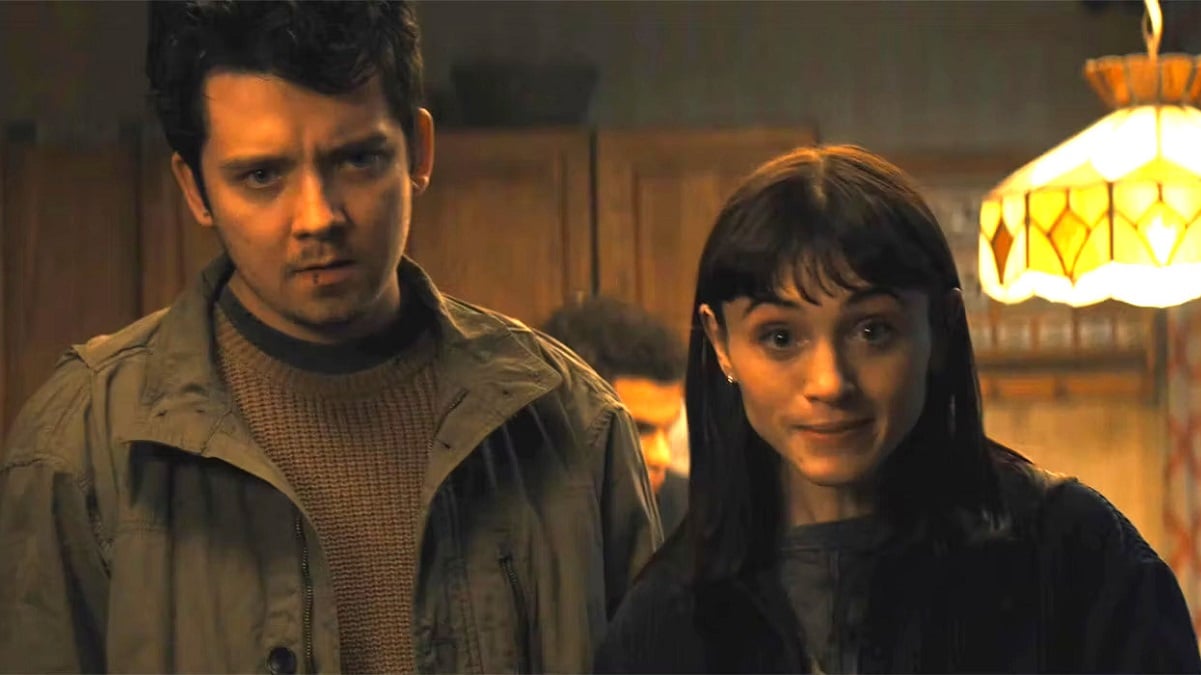
Having wrapped shooting all the way back in the spring of last year, how does it feel knowing your feature-length directorial debut is just days away from release?
Ari Costa: It’s both exciting and incredibly terrifying.
Eren Celeboglu: Yes, I would echo that same sentiment exactly.
Ari Costa: It’s like, “Okay, we’re gonna let our baby walk into this world.” And we hope that people don’t tell us it’s ugly! I mean, it’s extremely rewarding, we put we put a lot of a lot of work into this film, we’ve been working on it with AGBO for for many years, and we develop the script with them. And then we brought it out to Anton, and John Zois over at Anton, and we developed it a little bit more with him.
Anton ended up financing it and then obviously, the process of casting the movie and then shooting the movie and then editing, it was a longer editorial process than we would have expected for a film of this size. But I mean, incredible learning experience. And, it’s sort of, to put it bluntly, it’s the dream of two young horror fans. It’s the lifelong dream. So it’s really amazing to be to be bringing this film into the world.
You guys have been working together across various mediums for a decade now, but did it alter your process or dynamic at all making the jump to feature-length storytelling? Or was it a natural progression that came fairly easily given your working relationship and presumably the near-telepathic shorthand you’ve developed by now?
Eren Celeboglu: Yeah, I mean, I think it made it completely easier. And I don’t think we would have been able to do it, particularly with the budget and the limitations of time that we had, had we not, you know, we started out as writers, sort of for the first five years together, writing together just pilots and scripts.
And then we basically decided, “Okay, we need to direct,” we need to learn what it is to direct together, to be on the floor together. And then we spent the next five years making shorts, The Bride and The Internet Kills, which are two shorts that kind of got us this gig, ultimately, when the Russos saw it. And before we did this movie, we had to be approved by the DGA as a team.
You sort of get married, and you get on this zoom with everybody from Seth Rogen to Kimberly Peirce, to, you know, everybody, as directors. And what we found out was, a lot of these teams that come to be approved have never directed together. They want to direct together, right? Because they’re going to do a feature. And so Ari and I really had, we felt, “Oh my god, wow, we’ve really spent our time in the trenches together when no one’s watching to make mistakes and figure out our process.”
And so that was, I just don’t think we would have been able to work at the pace that was required and still have a great time, because we did have a great experience on this film, had we not put in those 10,000 hours prior.
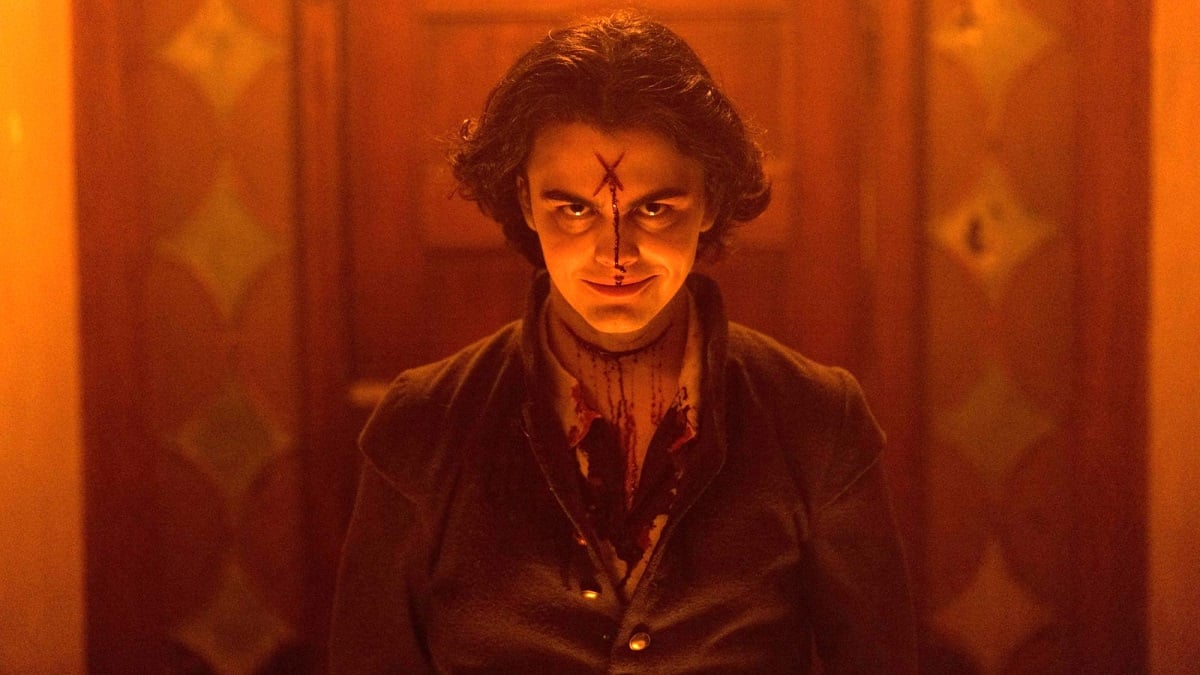
The running time is a breezy 76 minutes, which is very short even by horror’s standards. Were you always planning on having it come in so quickly so it was all killer and no filler, or did it turn out shorter than expected in the edit when you began honing in on what you determined to be the best possible version of what you’d shot?
Ari Costa: I mean, I think that just that truly comes down to the collaboration. Ultimately, our director’s cut was probably a little closer to 88/89 minutes, more standard in horror fare. Part of it was we knew in 20 days, trying to achieve some special effects and a small amount of stunts as well that that the scripting would need to be like 88. I think the script was actually 88 pages.
So we expected the runtime to be around then. And then ultimately collaborating with with our producers, they thought that the roller coaster ride of the movie was ultimately more valuable for the demographic that we were targeting. But you know, I think Erin and I’s preference would have been to have a little more character in the film, I mean, we are happy with where it is and how fast the ride is.
And we feel like it’s a full movie, we don’t feel like we’re cheating the audience out of anything, except just slightly more character and their relationships. I think the first act was a little longer in our director’s cut. I think one thing we’d like to hopefully earn in the future is, you know, the opportunity to be a little more patient would be nice.
Eren Celeboglu: We’re still very proud of the movie, particularly the characters and the performances, because for us, like the way we really approached this was this sort of smuggling a family coming-of-age drama, into sort of a possession and slasher movie.
We wanted to really start you with the family and the references that we went to when we were first writing the script were things like Lady Bird and E.T. and Mid90s, and Eighth Grade, because for us, that was the most appealing part really was the family and the heart of the of the piece, and we love scaring people, and scaring ourselves. But that was really what drew us to it. So I think that was something that, I think that’s something that we would always want to increase for us, would be character as much character as possible.
There’s a subversive element in play from the start, because even when you hear the word “Salem” there are obvious connotations that brings, so was it always a key part of your approach as writers and filmmakers to ensure that as much as All Fun and Games leans into certain tropes audiences might be expecting, it makes a point of deliberately not going all the way and embracing them completely?
Eren Celeboglu: Well, thanks, that’s really interesting. I mean, I think what’s really interesting – because I brought this up in another previous interview that we were talking to someone – is that we always had the backstory of this sort of child of a witch, and then just using that in terms of like generational trauma and abuse, but it was much more of a secret underneath.
I mean, you found out sort of maybe at the end, but it was really Joe Russo who said, “No, no, no, let’s bring the specificity of your backstory up.” Because, and to your point, it isn’t witches around being burned at the stake, and the normal kind of stuff. It’s much more about the social persecution, it’s more, it’s more Scarlet Letter, and so I think that’s cool that you picked up on that.
But I think for us, it was, again, it was always about, “What’s a story that could have happened in Salem hundreds of years ago that could still happen today.” Right? You know, and that is sort of a little boy going through trauma that for us was that was the real link.
Ari Costa: The parallels of of Joe – play by Ben Ainsworth, who really comes of age during our horror movie – and then this character of Daniel back in the Salem Witch Trial days, who went through this traumatic experience, and it’s just like, they’re parallel journeys. We tried a lot, like, what we think maybe adds a little unique layer to it is by humanizing our antagonist. And at the end, ultimately, the audience should feel conflicted about – spoiler alert here – about what ultimately happens to the demon in our story.
Eren Celeboglu: And we love this notion that all the people accused in Salem were not actually witches, and this whole idea that, maybe, what if, in our alternate history, that’s what resulted in witches, you know? It was this persecution that made people go, “You know what, I’m gonna go learn some black magic so I cantake vengeance on these on these persecuting old men who’ve made it their job to persecute women.”
And in many instances, when we started researching it, we’re like, “Oh, wow, all the witches were single mothers and it’s so systemic that you can’t help but see the parallels, and that was something that we, it’s subtly in there, but it definitely jumped right out at us. So it’s really cool that you picked up on that.
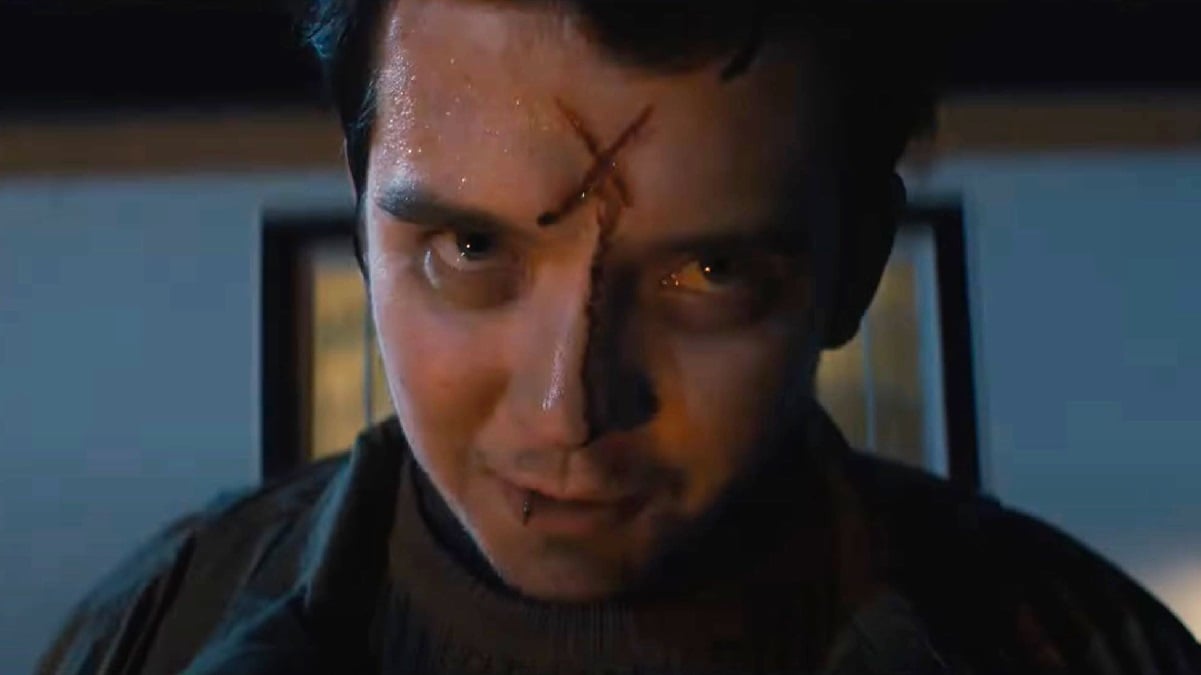
You’ve described it as “Amblin meets John Carpenter,” and as well as being a solid elevator pitch, it’s perfectly apt. All Fun and Games is either E.T. if the kids find a haunted knife instead of an alien, or Halloween with a ghost instead of Michael Myers, but did you ever have to rein in wearing those influences so proudly on the sleeve to ensure the film was still very much its own thing at the end of the day? Because it wouldn’t be unfair to say that sometimes, horror can fall into the trap of maybe being too reverential to its most obvious influences, which isn’t the case here.
Eren Celeboglu: Thanks. Thank you for saying that.
Ari Costa: Yeah, and I think that marriage creates a unique tone in itself. And I do think Erin and I, we describe this as a as a coming of age horror film. So we definitely want to take the heart of Amblin and the realistic family portrayal of a single mother. And we tried to both modernize our kids, but also give it a bit of a timeless feel in the way of It Follows. It’s like, you look that movie, and it’s hard to pinpoint exactly where it’s taking place, it’s almost its own unique world.
And we didn’t go to that extent necessarily, but we wanted the film and the characters to be completely accessible. And I think with the with the horror element, we wanted the threats to be real in the vein of like a Halloween. And we wanted there to be sort of real stakes. For sure. We’re hoping that the marriage of those two influences in tones provided something that was both a throwback film, throwback horror film, but also had its own unique thing going for it.
Eren Celeboglu: And I also think to Ari’s point, like what you were saying about being too reverential, which is totally true. I think what we really were trying to say with that Amblin meets John Carpenter’s is, “Okay, let’s just create a construct,” wherein you can say, “Okay, if this is what we’re dealing with, this might be possible.” Which is, “Okay, how do we subvert certain things?” which is that you think Jo is going to be the one who’s possessed, hopefully, and become the little demonic kid, and then you throw it to Marcus as he becomes the unstoppable kind of killing machine.
And so, again, playing with just what could happen within this world. It’s like, “How do you you that?” So then the references sort of fall away. And it’s more about what’s happening in relation to the story, and what we’re filming on the day, you know what I mean, as opposed to like, “Oh, we have to do this thing.” It was more like we’re finding our way in and, “Oh, well, we could go this way or that way.” I think the movie tells you what it is, in the end. I think that’s what we found.
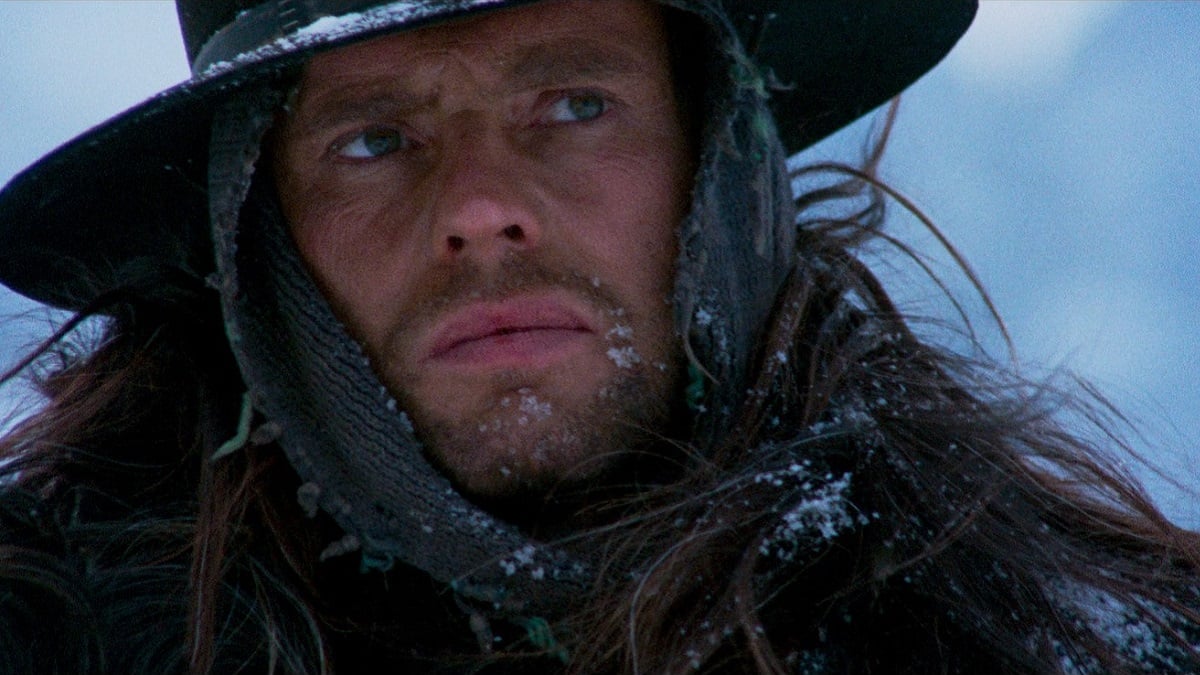
If you could make any project of your choosing without restrictions – as in, it can be whatever you want made however you want for however much you want it to cost – what would it be and why would it be that?
Ari Costa: I mean, a movie that already exists or movie a wholly of our own?
It can be either or, the possibilities are literally limitless.
Ari Costa: I think the movie we’re most passionate about is a film that at one point had Gael García Bernal attached to it, it is I think hugely representative of us as as writers and directors, which is we love a marriage of tone, and a marriage of genre. We like to almost juxtapose genres together, and this one is like a screwball comedy in the throwback vein of like a Preston Sturges or like the repartee of Hepburn and Grant, under the guise of horror.
So it’s a hugely unique story, but it also has a big musical component. And so we like to say tonally, it fits somewhere between a Coen brothers and a David Lynch. And it’s our true passion project. And I think there are various different ways it could be made, but it is like, a colorful fever dream fantasy.
Eren Celeboglu: And I think if we got to remake something, if we can remake something in sort of the Inglourious Basterds way, I think maybe something like The Great Silence, which is an incredible Spaghetti Western if you’ve never seen it. It’s got this wonderful character, Silence, whose neck is cut and can’t speak. And it’s just a great Sergio Corbucci Western, I think it would be a terrific remake for us to do if that if that was a non-original thing that we could do.
Ari Costa: Yeah, we do love Westerns. I mean, one of our first shorts we made together was called The Bride, and it is a Western horror film set in Iraq, basically. And it’s very cool.
Eren Celeboglu: Yeah, yeah. It’s like a Spaghetti Western with ghosts. You know that.
That’s all you need. How can anybody say no to that?
Eren Celeboglu: Yes, yes. The light is green!
All Fun and Games releases in select theaters and on VOD this Friday, Sept. 1.

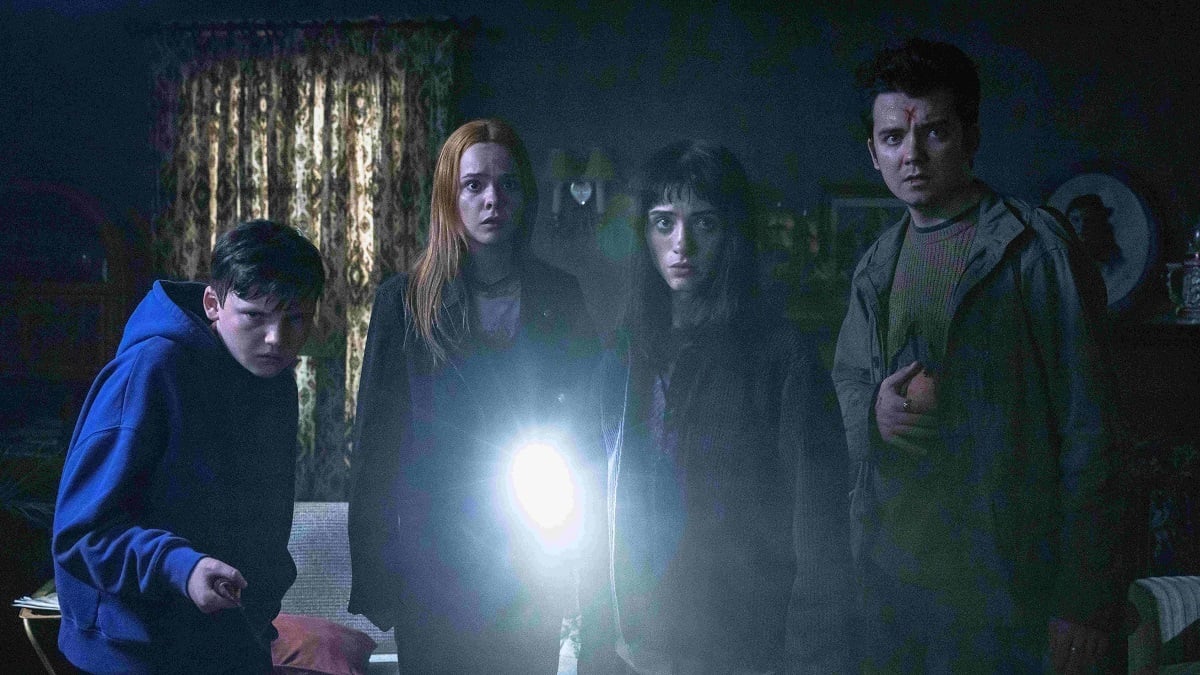









Published: Aug 31, 2023 03:41 am